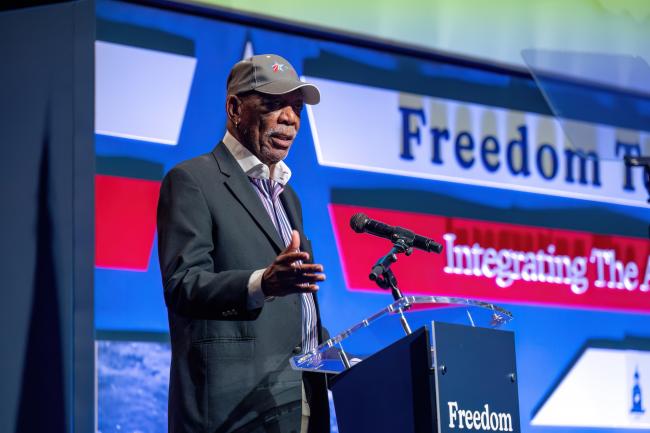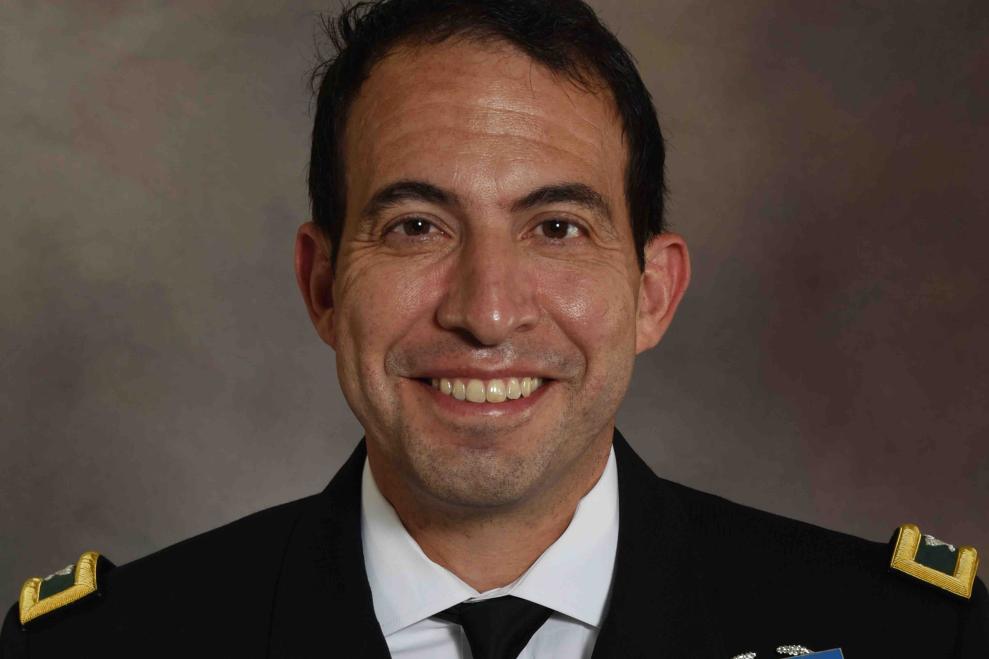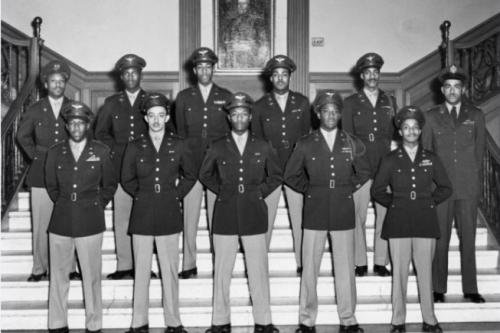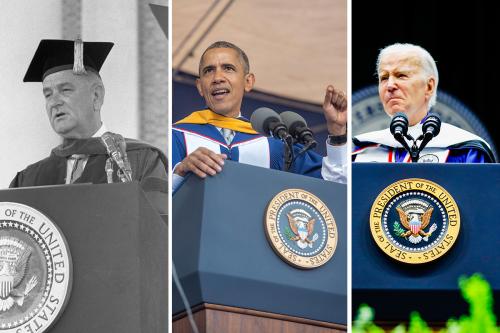WASHINGTON– Blue Star Families (BSF) in partnership with Howard University and The Chamberlain Project, hosted a panel symposium titled “Freedom to Serve: Integrating the Armed Services,” on July 26. The event wove together the expertise, data, and action of Blue Star Families’ Campaign for Inclusion with Howard University’s deep history of military service and civil rights activism and the modern efforts of The Chamberlain Project to bridge the military-civilian gap within higher education. BSF, the nation’s largest nonprofit dedicated to supporting military families and strengthening communities across the United States, brought together these perspectives in order to commemorate the 75th Anniversary of Executive Order 9981, a pivotal moment in American History that integrated the Armed Forces in 1948.
The symposium witnessed a gathering of distinguished guests and historymakers, including Academy Award Winner, Air Force Veteran, and Howard University honorary degree recipient Morgan Freeman (D.H. ‘15), Denis McDonough, Secretary of Veterans Affairs, and Carlos Del Toro, Secretary of the Navy, who served as keynote speakers. Lloyd Austin, Secretary of Defense, also gave virtual remarks.
“Civic responsibility and civic rights go hand in hand,” said Kathy Roth-Douquet, CEO of Blue Star Families. “By telling the story of how military service interrelates with civil rights and strengthens our country and home and abroad, we are telling a positive story of the people who serve and military service itself — which is particularly meaningful now, when recruiting is stumbling. We are excited to highlight many diverse heroes, and the way ahead.”
The symposium consisted of keynote speeches and two panels discussing the historical impact of E.O. 9981 and future implications of diversity on military service. Each panel reflected on the history of this important milestone and highlighted how the civil rights movement and military integration created a “talk-back” between each other over the past 75 years. Panelists included The Honorable, Former NASA Administrator, Astronaut and Retired Major General Charles Bolden, Admiral Michelle Howard (Ret.), Lieutenant General Arthur Gregg (Ret.), Lieutenant General Tom Bostick (Ret.), Major General Mark Simerly, Wayne A. I. Frederick, M.D., MBA, President of Howard University, Cadet Colonel Franklin, Howard University ROTC, and Willetta Brown, the daughter of LCDR Wesley A. Brown, CEC, USNA ‘49 (Ret.), the first African American graduate of the United States Naval Academy in June 1949.
“Since the U.S. was founded, Black people have fought in uniform for our country, while also fighting for their own freedom and civil rights,” said Carlandra “CT” Moss, Director of Blue Star Families’ Campaign for Inclusion. “In a lot of ways, Executive Order 9981 helped lay the foundation for the civil rights movement in the 1960s by recognizing the sacrifices Black servicemen made to secure our nation. This symposium not only allows us to reflect on our history and the important strides the Black community has made in building our military, but also to talk through what needs to happen to make military service more diverse and inclusive for future generations.”
Notably, Cadet Colonel Kendall Franklin, the Cadet Wing Commander of Howard University’s Air Force ROTC, also participated in the panel discussion, making it an intergenerational conversation that looks to the future. Cadet Colonel Franklin is the top student in the ROTC program and a mentor to her peers.
“The integration of the Armed Forces in 1948 was a pivotal moment in America's long and continuing journey toward the full realization of civil rights for all Americans,” said Jonathan Soros, Founder of The Chamberlain Project. “The Chamberlain Project was founded to help bridge the civil-military divide, and we are proud to be a partner with Howard University and Blue Star Families in commemorating this important anniversary and recognizing the essential connection between our civil and military institutions.”
This event was hosted on Howard University’s historic campus and in partnership with The Chamberlain Project, a program dedicated to connecting retiring service members to teaching positions at higher education to bring diverse perspectives to students.
"Howard University has a long history of supporting the diversity of the armed forces. Howard students, faculty and alumni play an important role in the military by bringing a broad range of perspectives, experiences, and expertise that contributes to the overall success of our nation's defense," said Howard University President Dr. Wayne A. I. Frederick. "For over 100 years, Howard University has had its own ROTC battalion, thousands of Howard alumni serve throughout the armed forces today, and Howard is the first HBCU to serve as a U.S. Department of Defense, Air Force University Affiliated Research Center. We are proud of our ongoing efforts and happy to serve as a host of this important event, commemorating a milestone in our nation's history."
About Blue Star Families
Blue Star Families is the nation's largest community-based organization supporting military-connected families. Its research-driven approach builds strong communities through innovative solutions. For more information, click here.
About Howard University
Founded in 1867, Howard University is a private, research university that is comprised of 14 schools and colleges. Students pursue more than 140 programs of study leading to undergraduate, graduate and professional degrees. The University operates with a commitment to Excellence in Truth and Service and has produced two Schwarzman Scholars, four Marshall Scholars, four Rhodes Scholars, 12 Truman Scholars, 25 Pickering Fellows and more than 165 Fulbright recipients. Howard also produces more on-campus African American PhD. recipients than any other university in the United States.
About The Chamberlain Project
The Chamberlain Project collaborates with several leading colleges and universities on the Retiring Officer Teaching Fellowships, aiming to assist in building relationships and understanding between the United States Armed Services and civilian institutions, to contribute to the richness and diversity of students’ educational experiences, and to facilitate transitions of retiring officers to civilian life.







